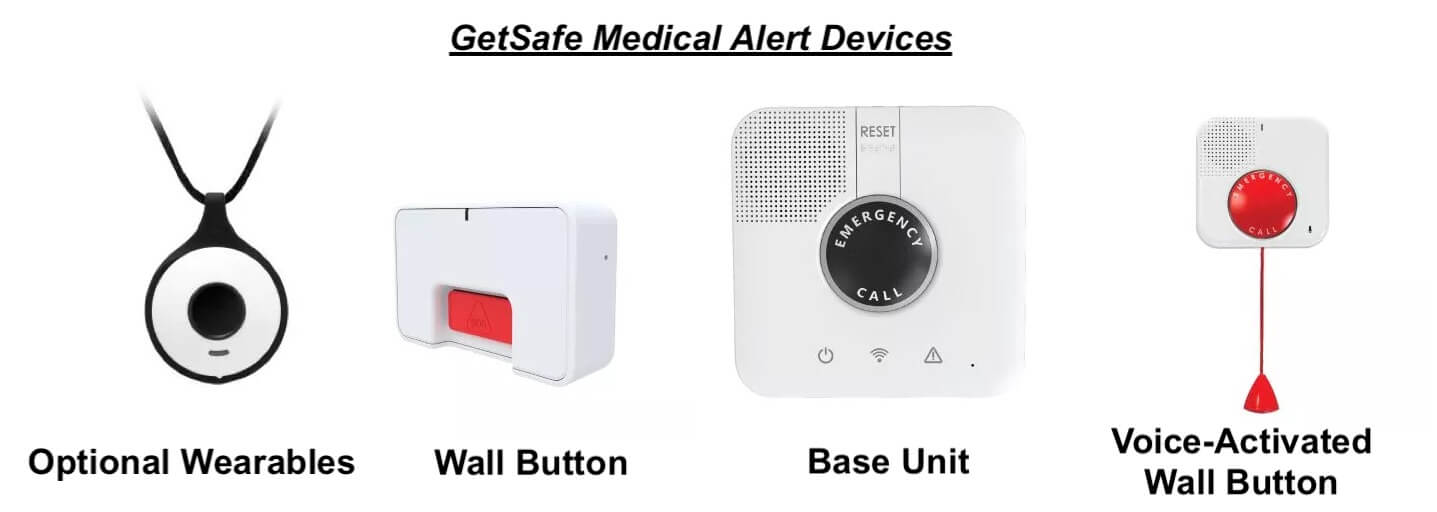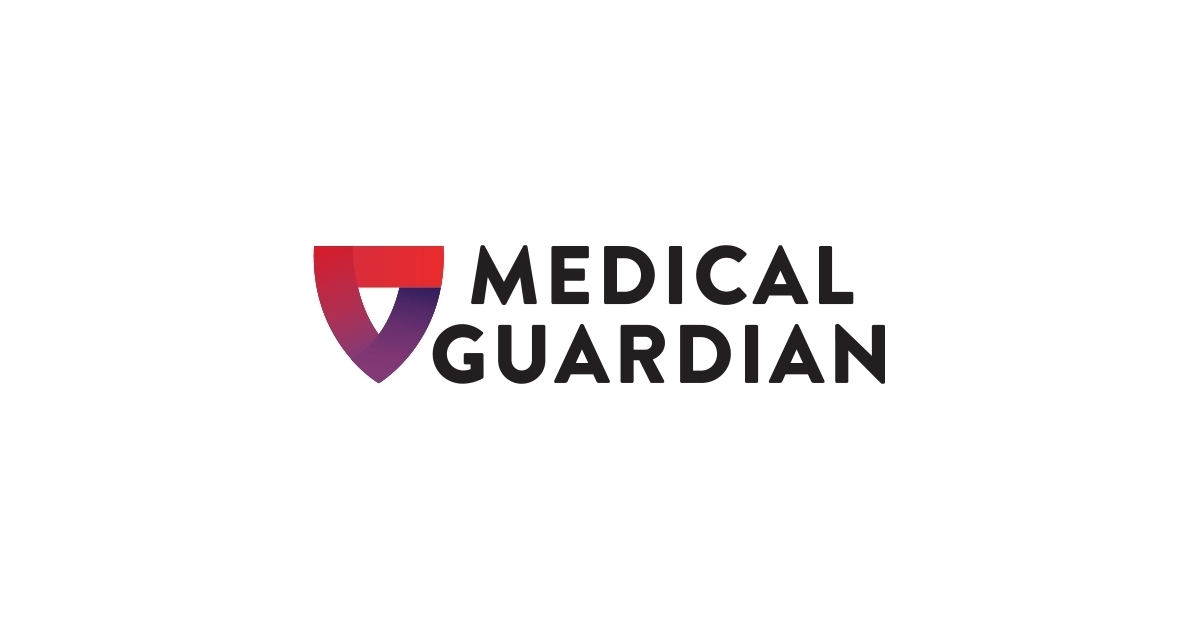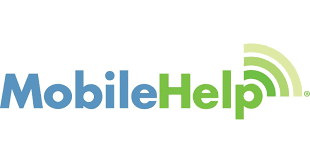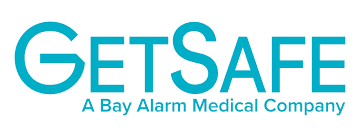Home Security Industry Expert Reviews ADT This ADT review will cover everything you need to know about the company, its products, and the experience you might expect owning them. The company is one of the most well-known and largest in the industry, offering a wide...
In a Nutshell
As seniors age, they often want to stay in their homes and maintain their independence for as long as possible. However, accidents and emergencies can surface, and having a medical alert system can provide peace of mind for both seniors and their loved ones. Whole-home medical alert systems, like GetSafe medical alert systems, are designed to be integrated into a senior’s home, allowing for easy access to help in any room of the house. This article will explore the pros and cons of GetSafe medical alert systems to help seniors and their families make informed decisions before availing of their products. [1]
GetSafe Company Description
GetSafe is a privately owned company established in 2016 that specializes in providing whole-home medical alert systems as an alternative to wearable devices. The company is a part of the Bay Alarm group of companies, which has been in business since 1946. Their 24/7 emergency monitoring centers have obtained the CSAA Five Diamond Certification and undergo yearly certification processes as well as randomized inspections conducted by the UL testing laboratory.
According to its website, the company upholds a strong commitment to delivering exceptional customer service, prioritizing customer data protection, and valuing customer safety. The company prides itself on its team of caring and ethical individuals who demonstrate a strong work ethic and are receptive to change, consistently delivering results that exceed expectations. The company also maintains a focus on profitability while upholding its commitment to integrity in all business operations.
Pros
Experience: As part of the Bay Alarm family of companies, GetSafe benefits from the experience and expertise of a well-established home security provider that has been in business since 1946.
Transparent Pricing: GetSafe provides transparent pricing on its website, allowing potential customers to easily compare plans and choose the one that best fits their needs.
No Long-Term Contracts: GetSafe offers its services on a month-to-month basis with no long-term contracts required, handing customers flexibility and peace of mind.
24/7 Monitoring and Multiple Ways to Get Help: GetSafe customers can call and get help whenever needed.
No Landline Required: To use GetSafe medical alert devices, you only need to have an internet connection and a power outlet.
Comfort: GetSafe customers do not have to wear GetSafe medical alert devices if they don’t want to. Place the wall buttons wherever you choose in your house.
Offers a 30-Day Free Trial: Try one of GetSafe’s medical alert devices for free for 30 days, with no obligation.
Extra Features: GetSafe medical alert systems include Automatic fall detection, waterproof buttons, five-year battery life, caregiver tracking, and offers multiple ways to get help (i.e., it’s voice-enabled – say “Call 9-1-1”, pull a cord, or push a button.)
Cons
Mixed customer reviews: GetSafe’s BBB rating is A+, but they have only a single 1-star review at the BBB. GetSafe is not BBB accredited.
Limited Product Offerings: While GetSafe’s focus on whole-home medical alert systems is a unique selling point, its product offerings are somewhat limited compared to other medical alert system providers.
No In-Person Support: GetSafe does not offer in-person installation, which may be a drawback for some customers who prefer hands-on assistance.
Limited to use only within the home: Customers commonly complain that GetSafe’s whole-home medical alert system only works within the home. However, this protection is gone once the user goes outside.
The up-front cost of the hardware: This up-front hardware cost ranges from $79 to $279, depending on the size of your home and the number of devices needed. The monthly cost of its medical alert system is $29.95, which is relatively affordable.
More details about GetSafe Pros
GetSafe is a medical alert system boasting innovative integration for the entire home. Unlike typical medical alert providers that necessitate wearable devices, GetSafe allows users to move around freely within their homes. This is particularly advantageous for individuals who find wearable devices uncomfortable or impractical.
One of the major advantages of GetSafe is that it does not require a landline. All of GetSafe’s medical alert devices connect wirelessly through 4G LTE, which means you only need a power outlet to get started. GetSafe provides customers with the assurance of 24/7 monitoring, which will send help when they need it.
Another advantage of GetSafe is its affordable monthly service fee. The cost of its medical alert system is $29.95 per month, which is relatively affordable versus other medical alert providers.
More details about GetSafe Cons
The primary con of whole-home medical alert systems over portable systems is that they are limited to use within the home. While whole-home systems like GetSafe offer the advantage of not requiring a wearable device, they cannot render protection outside of the home. Portable systems, on the other hand, are designed to be carried with the user wherever they go, allowing for protection inside and outside the home. Therefore, the choice between a whole-home and a portable medical alert system ultimately depends on the consumer’s needs and lifestyle.
Another potential downside of GetSafe’s medical alert systems is the upfront cost of the hardware. Prices range from $79 to $279, depending on the size of your home and the number of devices needed. While the $29.95 monthly monitoring fee is competitive with other medical alert companies, the initial investment may be a barrier for some customers. However, it’s important to note that this is a one-time payment for the hardware, and there are no hidden fees or long-term contracts.
GetSafe Customer Service
Customers can reach GetSafe’s customer service toll-free by phone. They also provide an online chat feature on their website for quick assistance. GetSafe’s customer service representatives are proficient when it comes to their products and services and can assist with any questions or concerns customers may have. They also offer a customer login page where registered customers can access their account information, view their purchase history, update their billing information, and manage their subscriptions.
GetSafe Complaints and GetSafe BBB
The medical alert system has received 1/5 stars according to GetSafe customer reviews on the Better Business Bureau (BBB). It has a BBB rating of A+ but is not accredited. One customer review can be found in their BBB profile.
GetSafe Replacement Parts
It appears that the company does not offer replacement parts for its medical alert devices. However, if a customer experiences an issue with their device, GetSafe’s customer service team is available to troubleshoot the conundrum at hand and provide assistance.
Frequently Asked Questions
Is GetSafe a good company?
Is GetSafe medical alert systems legit?
How do GetSafe medical alert systems work?
Which is better, GetSafe or One Call Alert medical alert systems?
How much do GetSafe medical alert systems cost per month?
Is GetSafe medical alert systems covered by Medicare?
Where to buy GetSafe systems?
Does the One Call Alert medical alert system offer a 30-day risk-free trial?
How to Contact GetSafe about its medical alert systems?

Doctor Naheed Ali
Editorial Reviews
Ring Home Security System Review
A 2024 Ring Security System Review (tried and tested) Searching for reviews on Ring home security systems? This Ring security system review will cover everything you need to know about the company, its products, and the experience you might expect owning them. I...
Emma Mattress Review
Home Security Expert Reviews SimpliSafe vs. Alternatives (2024)
This Simplisafe review will cover what you need to know about the company’s home security products, services, and background. We touch on its installation procedures, including that it offers both DIY and professional options, and we talk about the SimpliSafe app,...
Vivint Home Security System Review
Must Reads
How To Get a 100K Business Loan
If you're starting a new business or expanding an existing one, we don't have to tell you about the massive number of moving parts involved. Funding the transition is just one part—albeit a big one. As expected, entrepreneurs often spend most of their time honing...
Can I Refinance My Private Student Loan? Learn Options for 2024!
The weight of student loan debt can feel overwhelming, especially for graduates of professional programs like law school and medical school. According to the latest data from the American Bar Association, the average law school graduate owes approximately $130,000 in...
Review Liberty Home Guard Vs. American Home Shield Warranties
Overall, Liberty Home Guard offers top-rated service with its affordable and comprehensive home warranty plans. Detailed Comparison of American Home Shield vs. Liberty Home Guard AHS vs Liberty American Home Shield Liberty Home Guard Monthly Price $29.99 to $69.99...
Best Egg Vs. SoFi Which A+ Graded Company is Better for You?
Best Egg Loan Reviews Vs. SoFi Personal Loan Reviews Examining Best Egg loan reviews Vs. SoFi personal loan reviews reveals two similar approaches to online lending from two very different types of companies. Where SoFi offers full online banking services and lending,...
Debt Consolidation Vs Personal Loan
The primary difference between a personal loan and a debt consolidation loan has little to do with the loan itself and more to do with how consumers use the funding. The application processes can differ slightly in that when consolidating debt, it's wise to account...
Fitting Hearing Aids: All You Need To Know, by Dr. Ruth Reisman
How to Correctly Fit Hearing Aids Properly fitted hearing aids can significantly improve sound quality, enhance comfort, and optimize the efficiency of your hearing devices. This is particularly crucial for seniors with tinnitus, as correctly fitted hearing aids can...
Medical Guardian vs. Life Alert: Which Medical Alert System is Better?
Welcome to our comprehensive showdown between Medical Guardian and Life Alert – two titans in the world of medical alert systems. If you're seeking the ultimate safeguard for your loved ones or yourself, you're in the right place. We're about to dive deep into this...
How to Choose a Mattress With Confidence: Everything You Need to Know
You've heard it said that we'll spend somewhere around a third of our lives in bed—And the math works out. While we're mostly awake for life's larger portions, taking care of ourselves all the time is essential—Not just the two-thirds we remember best. Learning how to...
Happy Head vs. Hims vs. Keeps: Best & Worst ways to regrow hair!
Happy Head vs. Hims vs. Keeps: What is the best product to regrow hair? Are you ready to stop hair loss and regrow a thick head of hair? Happy Head, Hims, and Keeps offer effective hair loss and regrowth treatments for men and women. Harnessing the power of...
Which is Better?: Identity Guard Vs. LifeLock
Which is Better?: Identity Guard Vs. LifeLock At first, an Identity Guard vs. LifeLock comparison may look like a toss-up. Both companies have been in the game longer than most, and both offer solid identity theft protections and plans with variable coverages to allow...




